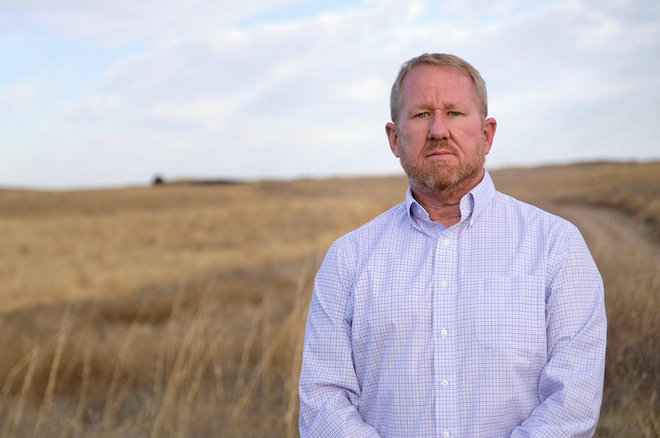
By BECKY KISER
Hays Post
Mayor Mason Ruder likes to point out he was four years old in 1995 when the city of Hays purchased the R9 Ranch in Edwards County as a long-term water supply.
Now, 28 years later, the project is finally picking up speed, especially in the past year.
"Every day is now an R9 Ranch Day," Ruder declared with a smile during last week's city commission meeting.
City Manager Toby Dougherty updated commissioners on the R9 water transfer process. It started in February 2014 when the then-city commission voted to apply to the state to change the water use from agricultural irrigation to municipal, and begin the approval process.

In June 2015, the change applications were filed and three years later a draft master order was issued through the Division of Water Resources in the Kansas Department of Agriculture.
The master order was issued in March 2019.
The Kansas Water Transfer Act has never been enacted; by statute, the process is purposely slow and meticulous to determine if it's in the best interest of the state for the transfer of water from Edwards County to Ellis County, and then on to Russell County, which owns a small portion of the ranch.

The timeline has been dramatically slowed by several petitions and appeals starting in April 2019 by WaterPACK, Water Protection Association of Central Kansas, the only active opponent in the project.
On June 29, 2022 Judge Bruce Gatterman, chief district judge of the Edwards County District Court, affirmed the Kansas Department of Agriculture’s chief engineer’s 2019 approval of the cities’ change applications.
WaterPACK appealed.
The group of irrigators believes Hays and Russell are being allowed to take too much water from the R9 Ranch, southeast of Kinsley, and there is potential harm in that.
"If they want to drag this out, fine," Dougherty said with a shrug of his shoulders.
"We've received our positive ruling. We're starting the transfer process. We're moving forward. We don't think they're going to be successful."
Commissioner Sandy Jacobs interrupted Dougherty's report to express her anger at the continued delays and resulting increased cost to the city.
According to Dougherty, the deviations have cost the city about $2 million to date "in attorneys, in engineers. That's hard costs. Soft costs, inflation, you're talking $30-$40 million dollars, in what we could have done versus what it's going to cost now."
Converting water rights for one use to another is a widely used practice across Kansas, Dougherty told the commissioners.
"When you convert irrigation water rights to municipal water rights, you don't get 100% of that. You get a formulaic reduction to protect the water rights around you and to protect the aquifer, to make sure the new use does not use more water than the previous use," he explained.
Early on in the process, Hays and Russell voluntarily agreed to reduce their water rights by another 30% "because we want to make sure we don't do anything to potentially harm the aquifer.
"To this group, that's not enough."
Administrative law judge Matt Spurgen was appointed October 21 as hearing officer of the transfer hearing panel.
By the end of February, replies to the WaterPACK appeal are due from the cities and the Division of Water Resources, followed by another reply from WaterPACK.
By statute, oral arguments should be scheduled this summer with a final decision by the water transfer panel anywhere between October 2023 and May 2024.

With the entire state of Kansas currently in a drought - to various degrees - "it's getting serious again," said Jacobs.
"I would think this is to our benefit. We're talking about water for people, for sustainability of life in our area," she said.
Dougherty again emphasized he has "no doubt we will prevail" in the appeal process and decision by the water transfer panel.
"I am finalizing the wellfield and pipeline project design contracts," he told the commission. "I hope to have those in front of you within the next couple of months for your approval so we can get started on the design contract.
"As soon as the design contracts are approved, we're gonna send that RFQ (Request For Quote) for a land acquisition services firm ... and then start acquiring the land for the pipeline itself."
The R-9 Ranch is being converted to native grass and walk-in hunting from irrigated cropland.
Dougherty said he's been searching for federal funding to help pay for that conversion and a possible move to more public use of the property.
To see the entire Jan. 12 update on the R-9 Ranch, courtesy of Nex-Tech, click here.
Below is a Jan. 13 recap discussion (at about 9:00) with Dougherty and Jacobs on KAYS Radio with Hays Post news reporter Becky Kiser.






